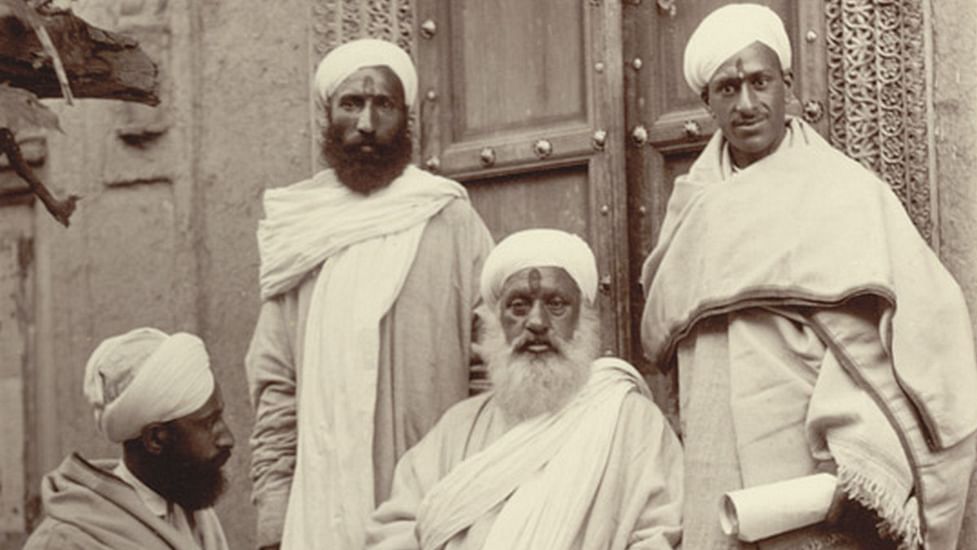Religious Practices
-: Religious Beliefs of kashmiri pandit :-
Kashmiri Hindus are referred to as Kashmiri Pandits (also known as Kashmiri Brahmins) As a subset/part of the larger Saraswat Brahmin community of India. They are Pancha Gauda Brahmins from the Kashmir Valley, a mountainous area within the Jammu and Kashmir Union Territory, which is administered by India.
The indigenous people of Kashmir, a mountainous area of South Asia, are known as Kashmiri Pandits.
Pandits are Hindus, and as such, they hold a variety of beliefs, such as dharma (moral behavior, duty), karma (action, fruits of action), samsara ("flow," reincarnation), ashrama (stages of life), purushartha (instrumental and ultimate goals), prarabdha (fate), anugraha (divine grace), punya (meritorious action), and papa (moral evil). They are legatees of Kashmir Shaivism, a non dualistic school of philosophy, on a more abstract level. Rituals aid in connecting people to a hierarchy of supernatural beings, ranging from low Sanskrit deities (e.g. g. , Vishnu, Shiva, and Shakti) and local deities who are viewed as essentially good.
The only remaining Hindu Kashmiris are Kashmiri Pandits, who were once a significant portion of the Valley's population before it was extensively converted to Islam in the Middle Ages. They are Kashmir Valley natives and Hindus.
Shiva has the most devotees among Kashmiri Pandits. Khir Bhawani is their favorite deity/goddess. One of their holiest locations is the spring of Khir Bhawani, which is located at the entrance to Sind Valley. Kashmir Shaivism is the name of their particular strain of Shiva worship. The central idea of Kashmir Shaivism is that each person must personally experience and realize that their soul is one with the universal spirit.
In many Kashmiri Pandit religious ceremonies, song plays an important role. The term "Wanvun" refers to this type of choral singing.


⦁ Religious Practitioners :-
Whatever domestic rituals are performed in honor of—Sanskritic deities,
locally acknowledged supernatural beings, or ancestors—household
members are the ritual's foremost practitioners. While women cannot
serve as the principal officiants in rituals because that is their role as
wives or mothers, men are still primarily responsible for performing
those rituals. Sanskrit rituals must always have priests present.
⦁ Medicine :-
Many causes, both natural and supernatural, are thought to contribute to illness. Home remedies (mostly herbal brews and preserves) are combined with consultations with experts in both conventional Unani (Greco-Arabic) and contemporary allopathic medicine. Priests and astrologers are consulted to identify astral and supernatural causes and carry out the proper curative rituals.
⦁ Death and Afterlife :-
Deaths can be categorized as good, bad, or premature. One is said to have "attained" the good death if they pass away after successfully achieving their householder responsibilities, without contracting a serious illness, or without losing any vital organs. Although infants who pass away before cutting their first teeth are buried, the deceased are typically cremated. Twelve days of rituals are held after cremation. These are carried out to facilitate the spirit's journey to the "land" of the manes. Rituals for "watering" and "feeding" the manes occur twice a year. At the same time, everyone is thought to be reborn, with the exception of the most spiritually developed individuals. Spiritual pursuit aims to liberate oneself from the shackles of rebirth and redeath. The ultimate source of such salvation (moksha) is divine selection or grace.
By Kankan
Reference:-
1) https://www.everyculture.com/South-Asia/Pandit-of-Kashmir-Religion-and-Expressive-Culture.html
2) https://theprint.in/opinion/why-kashmiri-pandits-may-never-return-to-the-valley/329103/
3)https://ikashmir.net/religion/index.html
Comments
Post a Comment